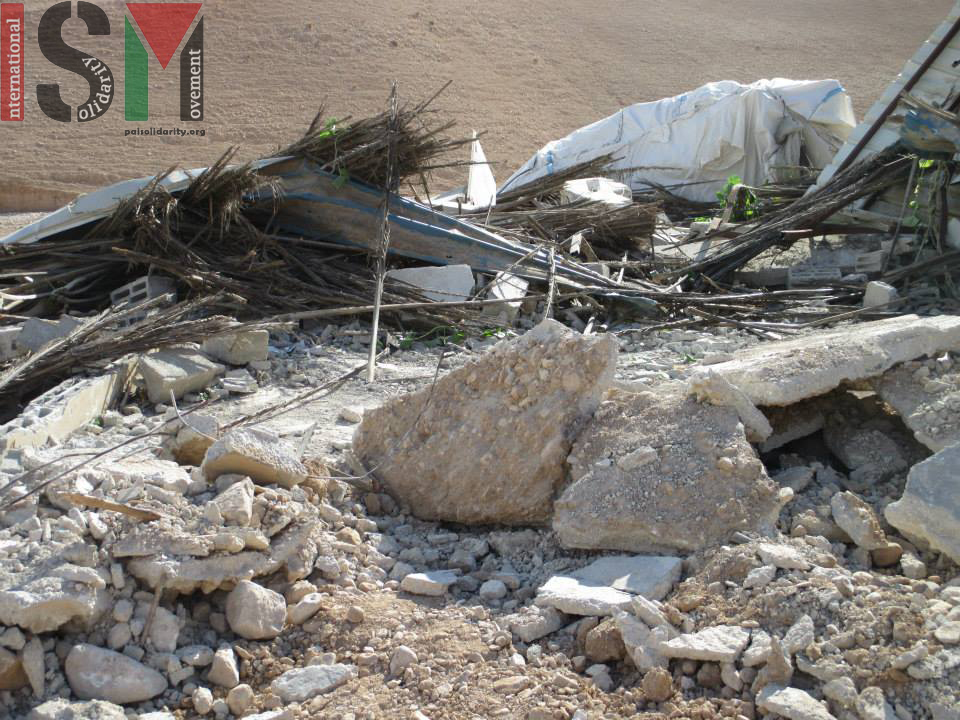Tag: Al Jiftlik
-
Family home and five other structures demolished by Israeli military
21st October 2014 | International Solidarity Movement, Nablus team | Jordan Valley, Occupied Palestine On October 20th, the Israeli military destroyed six structures belonging to a family in the village of al Jiftlik, in the Jordan Valley. At approximately 6:00 am, Israeli soldiers destroyed the family home of Mohammed Mousa Mohammed Abohernam, as well as five other buildings,…
-
Jordan Valley: Three families invaded by one hundred Israeli soldiers in Al Jiftlik
by Kim 17 March 2012 | International Solidarity Movement, West Bank On March 15th at 16:00 we got a call about three house demolitions in the village of Al Jiftlik, near the Jordan Valley. We threw ourselves into the first public transportation vehicle to take us to the village. It was dusk when we came to…
-
Tractors confiscated in Al Jiftlik, Jordan Valley
29 March 2011 | Lydia At approximately 7 am this morning the Israeli army entered the village of Al Jiftlik. Soldiers went door to door ordering all tractor owners to bring their farming vehicles to the closed military zone between Miswa settlement and a nearby Israeli army base, where they had set up a temporary…

